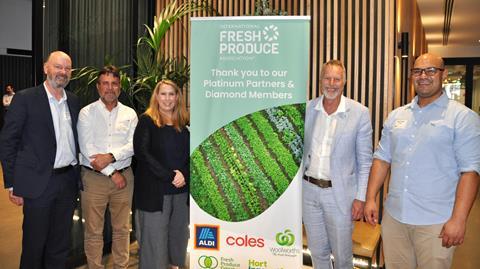IFPA A-NZ calls for entire supply chain equipped to address food safety challenges

International Fresh Produce Association Australia and New Zealand (IFPA A-NZ) hosted its second annual Food Safety Summit in Melbourne in December.
The summit covered an overview of the global food safety landscape, upcoming changes to production and processing standards for berries, melons, and leafy vegetables and how the IFPA A-NZ can support growers on food safety.
IFPA A-NZ head of food safety Deon Mahoney and US-based IFPA chief food safety and regulatory officer Natalie Dyenson were among the speakers.
Changes to the Food Standards Code in 2022 saw horticulture included as a new responsibility for state and territory regulators. According to Mahoney there has been some confusion about what the new standards mean for berry, melon, and leafy vegetable sectors.
“The fresh produce industry currently works with voluntary standards set by supermarkets and food service customers and there have been no previous standards for these sectors,” he said.
The summit was an opportunity for Food Standards Australia New Zealand (FSANZ) and Safe Food Production Queensland (SFPQ) to address these concerns and outline how individual states and territories approach food safety regulation differently
“The regulations are not that onerous,” Mahoney said. “The general view is that if producers are already meeting stringent supermarket standards, they will meet the new regulations.”
However, Mahoney added regulators need to start registering growers and packers.
“Regulators can move things forward when growers and packers are engaged,” Dyneson said. “From an international standpoint, other developed countries have had these regulations in place for decades. Australia is catching up.”
In contrast, Dyenson said the safety of Australia and New Zealand’s food supply chain was equivalent to that of the world’s leading nations including the US and parts of Europe.
However, as food safety is a constantly evolving area, Mahoney urged producers to be ready for what could go wrong.
“There are 4.86m cases of foodborne illnesses in Australia each year which has a pretty staggering A$2.8bn burden on the medical system. Life-limiting illnesses can be caused by salmonella, listeria, campylobacter and E. coli. The industry needs to do all it can to protect consumers–at every step along the supply chain,” he said.
“Australians generally trust the food supply chain. However, they also have long memories, and an outbreak can affect their perception of a fresh produce line well after the issue has been rectified.”
Dyenson and Mahoney said pressure points for food outbreaks included climate change causing extreme events, labour shortages, rising costs of transportation, access to safe water and soil amendments.
“There’s the added pressure around the need for fresh produce growers to be sustainable,” Mahoney said. “Packaging is a big one–it’s functional, protects against contamination, and aims to reduce food waste–but is not always sustainable. Finding an intersection between food safety and sustainability is a challenge.”
He added the next decade would see the emergence of new pathogens causing foodborne illnesses. Yet there would also be better diagnostics such as genome sequencing to detect the cause of outbreaks.
“In the food industry, you can run but you can’t hide. There is hardly a product that cannot be affected by salmonella or listeria. Growers often don’t think of themselves as part of the food supply chain, but they need to. The IFPA A-NZ can help, and we urge growers to take advantage of our services and resources including webinars, newsletters and workshops,” Mahoney said.
A report from the summit will be issued in 2024 and another summit will be held in late 2024.



